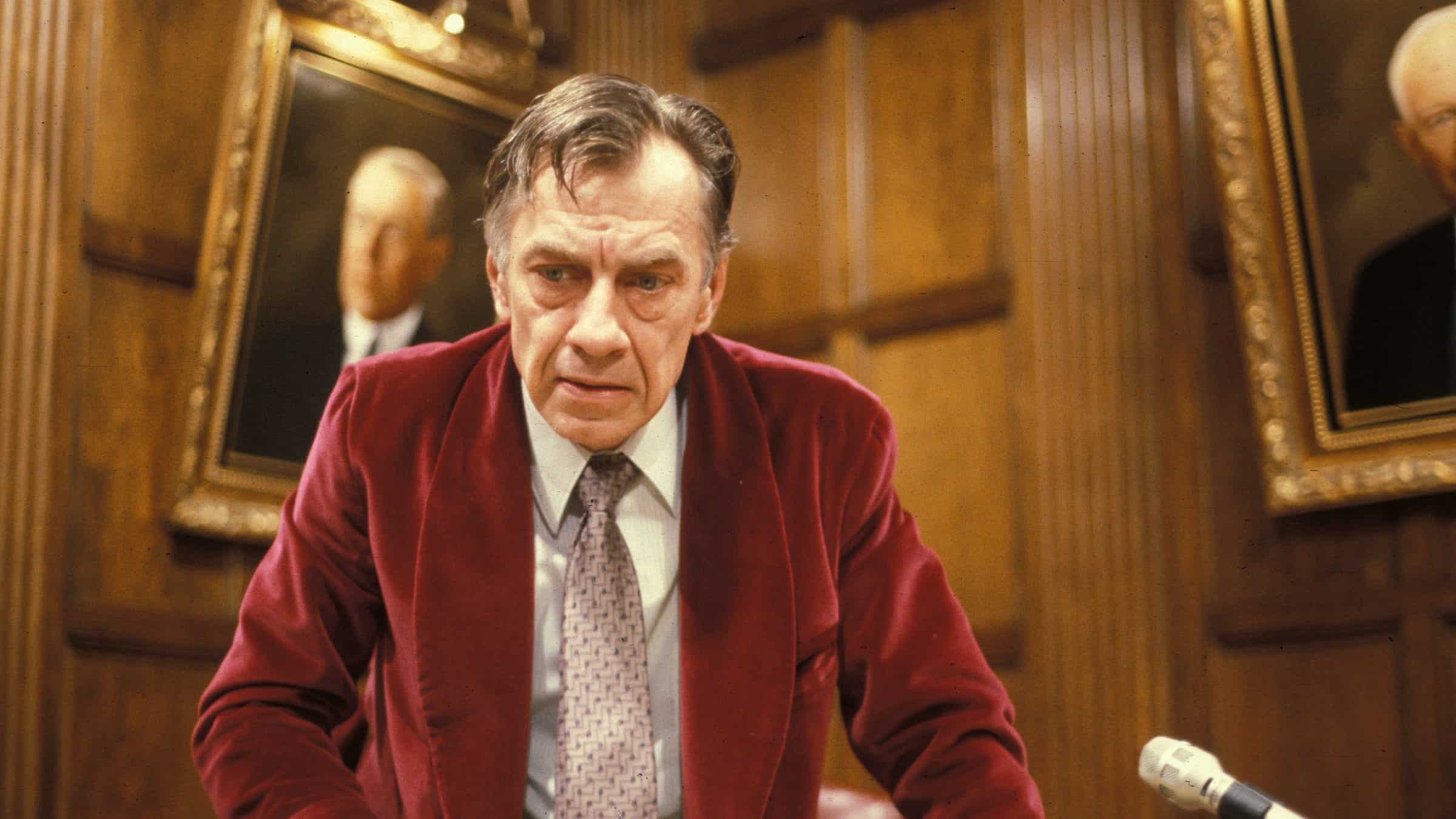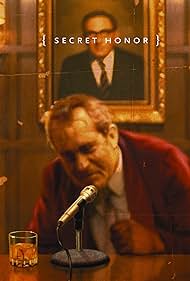Secret Honor is one of director Paul Thomas Anderson’s favourite films, was loved by late lamented critic Roger Ebert and is one of the select fraction of movies given a home in Criterion’s choice “Collection”. Most people have never heard of it, though they do know its maker, Robert Altman, director of Mash, The Long Goodbye and Nashville, and later The Player, Short Cuts and Gosford Park.
Secret Honor came between those two blocks of three, in the period after the relative flop of 1980’s Popeye and the comeback of 1992’s The Player, when no matter what Altman did (film, TV or theatre) nothing really seemed to hit bullseye.
Nor, to be frank, did Secret Honor, though it got raves in some quarters. Ebert said “rarely have I seen more compelling minutes on the screen”, while Vincent Canby’s review in the New York Times described it as “one of the funniest, most unsettling, most imaginative and most surprisingly affecting movies of its very odd kind”.
We’ll come to “its very odd kind” in a sec.
As well as being made in Altman’s luckless (though highly productive) years, Secret Honor was made entirely outside the studio system, at the University of Michigan where Altman was a professor, using a largely student crew. And it was explicitly made for TV. More strikes against.
Which brings us to the film itself – “a work of fiction, using as a fictional character a real person, Richard M Nixon”, it says on screen. Here we come to the “very odd kind”, since this is an imagined eavesdrop on an angry and drunk ex-president, on his own in his oak-lined study with surveillance paraphernalia and a loaded gun, as he leaves voice memos for his personal assistant, these repeatedly triggering rambles/rants about his political career, his life and where (and when) it all went wrong.

It’s an insistent, piss-and-vinegar portrait of a man’s life, Nixon ramblingly furious and foul-mouthed – “cocksuckers”, “sons of bitches” etc – as he ranges over the various characters who did him wrong. The crooked Kennedys, that “whoremonger” Kissinger, Ralph Nader and Jane Fonda and the liberals, returning repeatedly to Watergate, a self-detonated bomb, according to Nixon, to stop something even worse coming out. This is the film’s fictional nugget – that Nixon was in fact in hock to a shadowy group of powerbrokers known as the “Committee of 100”, who co-opted him as a young politician and then pulled his strings forever after.
Philip Baker Hall is the only one on screen for the film’s entire length and he structures his performance like a concerto – faster and slower, louder and quieter, up and down the keys – not exactly impersonating Nixon so much as using characteristic gestures and vocal inflections to telegraph the nature of the man – the way Nixon put his hands up, for instance, midway between vaudeville and “I surrender”; Hall’s pronunciation of the word “crook”, just right and a beautifully ironic example of getting it just right.
It is a picture of wounded animal at bay, licking its wounds and howling. A politician driven mad by the pressures of a career to which he was probably temperamentally unsuited. And a man backed into a corner by a decision he made when he was young and naive. Now, drunk, confused, possibly a touch demented, and imagining himself as about to have a second act – even if it’s only in front of a judge – Nixon is desperate.
Hall makes us feel sorry for the man if not the politician. His performance strikes sparks. He’d done it on stage already, so knew Donald Freed and Arnold M Stone’s play intimately. Robert Harders directed the stage version and gets a deserved “associate director” credit here. For his part Altman hangs right back, directing as unobtrusively as possible – no Altmanesque edits or overlapping dialogue here – the consummate professional who’d cut his teeth on corporate training films and TV shows and knew how to make a screen drama.
Remarkably, considering Altman’s political antipathy towards Nixon, it’s a strangely sympathetic portrait. For all Nixon’s use of the sort of racist language that would never make it onto TV these days, we get a sense of a man whose misfortune is that his own tragic flaw, his own sense of his unworthiness, has been weaponised against him. He’s not necessarily a bad man, just a man gone wrong.
Secret Honor – Watch it/buy it at Amazon
I am an Amazon affiliate
© Steve Morrissey 2024

